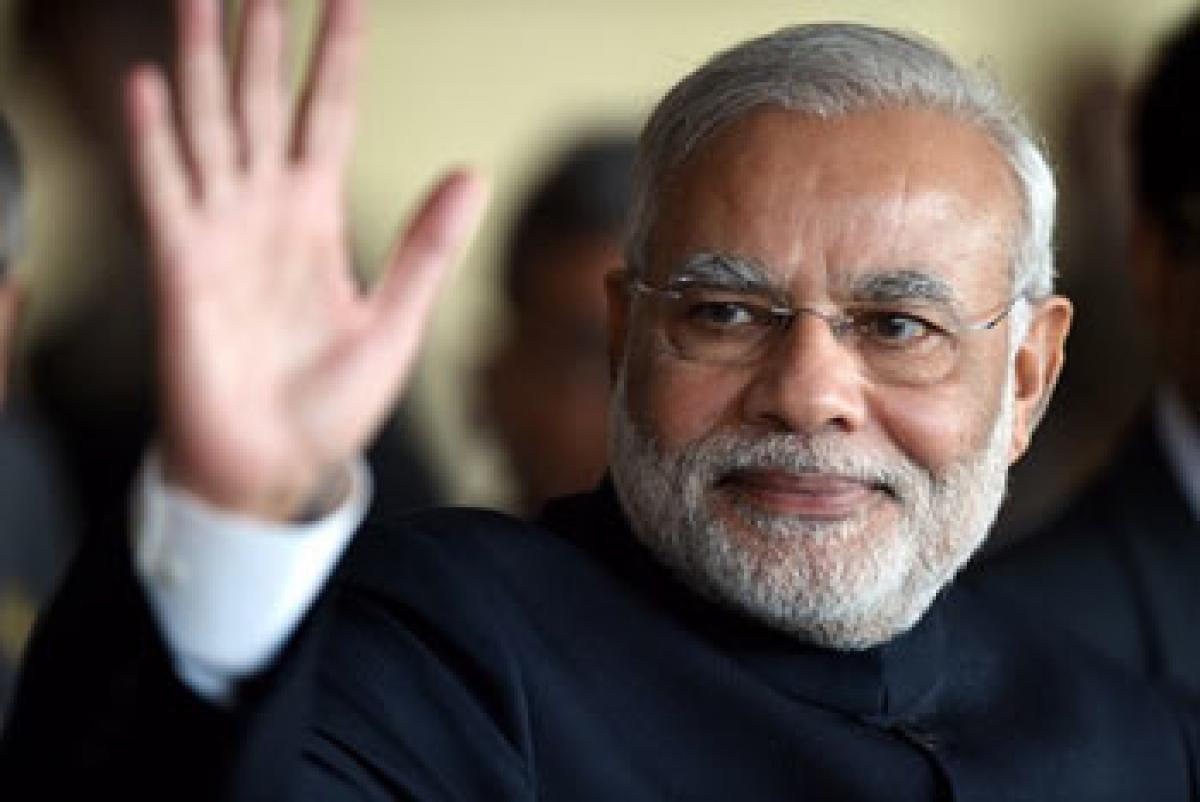Live
- Anant National University Hosts the 6th Convocation with Mrs Sudha Murty as Chief Guest
- Honda Motorcycle and Scooter India conducts Road Safety Awareness Campaign in Siddipet, Telangana
- Natural Moisturisers You Can Find in Your Kitchen for Dry Skin in Winters
- National Energy Conservation Day 2024: Importance, Date, and Ways to Save Energy
- In 2024, 353 girls enrolled in 33 erstwhile pattern Sainik Schools
- Venkatesh looks as stylish cop in ‘Sankranthiki Vasthunnam’ new song promo
- ‘Drinker Sai’ comes with a catchy song ‘Drinksu Drinksu Drinksu’
- SDT unleashes intensity in ‘Sambarala Yetigattu’ teaser
- Court Adjourns Quash Petition Hearing for Allu Arjun to 21st of December
- Youthful love story ‘Varadhi’ clears censor; set to release soon
Just In

In the next few days in Paris, the world will decide the fate of our planet. I hope the climate conference that begins there today will produce an agreement that restores the balance between ecology and economy — between our inheritance and our obligation to the future.
 Climate change imperative
Climate change imperative
Justice demands that carbon curbs should not limit poorer nations’ ability to grow, wrote Prime Minister Narendra Modi in Financial Times
The principle of common but differentiated responsibilities should be the bedrock of our collective enterprise. Anything else would be morally wrong. Some say advanced countries powered their way to prosperity on fossil fuel when humanity was unaware of its impact. Since science has moved on and alternative energy sources are available, they argue that those just beginning their development journey bear no less responsibility than those who have reached the zenith of their progress. New awareness, however, should lead advanced countries to assume more responsibility
In the next few days in Paris, the world will decide the fate of our planet. I hope the climate conference that begins there today will produce an agreement that restores the balance between ecology and economy — between our inheritance and our obligation to the future.
The conference will also, I hope, reflect a collective global commitment balancing responsibilities and capabilities on one hand with aspirations and needs on the other. It should recognise that, while some face a choice between lifestyles and technologies, others stand between deprivation and hope.
Democratic India is among the world’s fastest-growing economies. We are striving to meet the aspirations of 1.25bn people, 300m more of whom will soon have access to modern sources of energy while 90m gain running water.
The instinct of our culture is to take a sustainable path to development. When a child is born, we plant a tree. Since ancient times, we have seen humanity as part of nature, not superior to it. This idea, rooted in our ancient texts, endures in sacred groves and in community forests across the land.
India is also experiencing the impact of climate change caused by the industrial age of the developed world. We are concerned about our 7,500km of coastline, more than 1,300 islands, the glaciers that sustain our civilisation and our millions of vulnerable farmers.
We will play our part. We have pledged that, by 2030, we will reduce emissions intensity by at least 33 per cent of 2005 levels, and 40 per cent of installed power capacity will be from non-fossil fuel sources.
We will have 175GW of renewables by 2022, and have imposed levies on coal and rationalised subsidies on petroleum products. Additional forest and tree cover will absorb at least 2.5bn worth of carbon dioxide. We will clean our rivers and create smart cities. We are replacing diesel with clean energy, and building 50 new metro railways.
We are sharing our modest resources with the developing world, helping small island states and African nations with renewable energy. On Monday French President François Hollande and I will launch an international solar alliance with 121 solar-rich countries in the tropics, aiming to bring affordable solar power to villages that are off the grid. We expect the same from the world with respect to responding to climate change. The principle of common but differentiated responsibilities should be the bedrock of our collective enterprise. Anything else would be morally wrong.
Justice demands that, with what little carbon we can still safely burn, developing countries are allowed to grow. The lifestyles of a few must not crowd out opportunities for the many still on the first steps of the development ladder. Some say advanced countries powered their way to prosperity on fossil fuel when humanity was unaware of its impact.
Since science has moved on and alternative energy sources are available, they argue that those just beginning their development journey bear no less responsibility than those who have reached the zenith of their progress. New awareness, however, should lead advanced countries to assume more responsibility. Just because technology exists does not mean it is affordable and accessible.
We should meet our need for clean energy and healthy habitats in a spirit of partnership, not put nations on different sides. India will work with governments, laboratories and industry to facilitate a natural transition to a clean energy era through affordable and accessible renewable energy.
The best political and technical measures will be ineffective, and our collective efforts inequitable, unless we review a lifestyle that overburdens our planet. Nature can provide when it is in equilibrium, not when it is depleted faster than it can renew. Our targets must seek to drive restraint in use of fossil fuel and moderation in our lifestyles.
We look forward to Paris with the sense of duty that Mahatma Gandhi called us to assume: “We should act as ‘trustees’ and use natural resources wisely as it is our moral responsibility to ensure that we bequeath to future generations a healthy planet. India will do its part for success in Paris. (Courtesy: http://www.ft.com)
By Narendra Modi

© 2024 Hyderabad Media House Limited/The Hans India. All rights reserved. Powered by hocalwire.com







